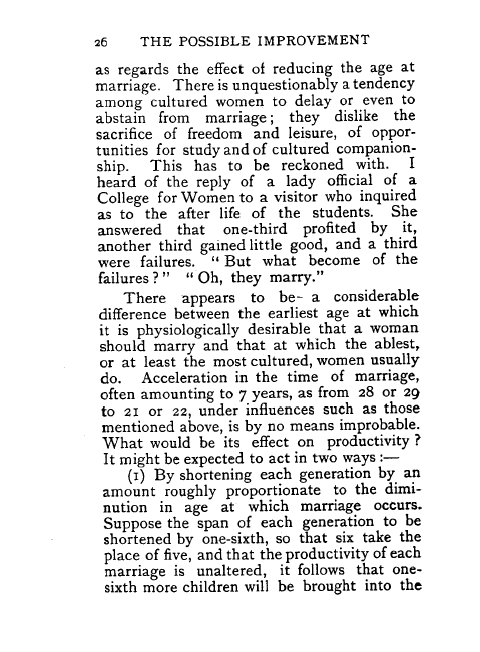26 THE POSSIBLE IMPROVEMENT
as regards the effect of reducing the age at marriage. There is unquestionably a tendency among cultured women to delay or even to abstain from marriage ; they dislike the sacrifice of freedom and leisure, of opportunities for study and of cultured companionship. This has to be reckoned with. I heard of the reply of a lady official of a College for Women to a visitor who inquired as to the after life of the students. She answered that one-third profited by it, another third gained little good, and a third were failures. " But what become of the failures?" " Oh, they marry."
There appears to be- a considerable difference between the earliest age at which it is physiologically desirable that a woman should marry and that at which the ablest, or at least the most cultured, women usually do. Acceleration in the time of marriage, often amounting to 7 years, as from 28 or 29 to 21 or 22, under influences such as those mentioned above, is by no means improbable. What would be its effect on productivity ? It might be expected to act in two ways :
(i) By shortening each generation by an amount roughly proportionate to the diminution in age at which marriage occurs. Suppose the span of each generation to be shortened by one-sixth, so that six take the place of five, and that the productivity of each marriage is unaltered, it follows that onesixth more children will be brought into the

